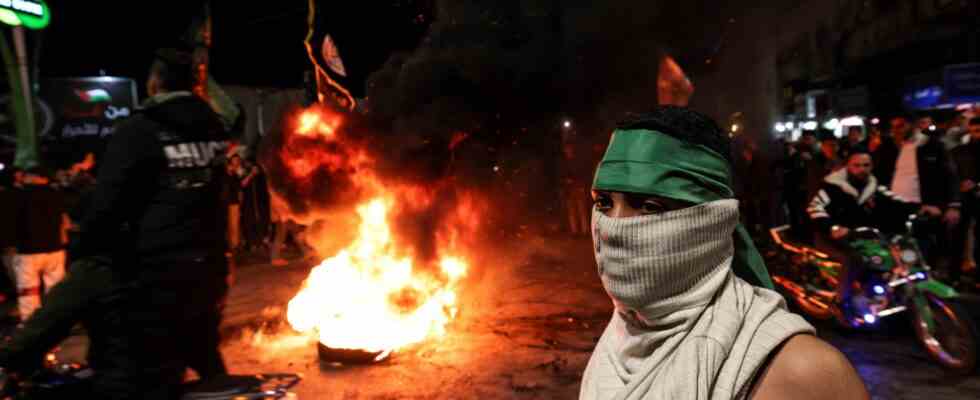comment
Status: 01/28/2023 01:25 am
The attack in Jerusalem could be a sign that the Middle East conflict is turning from a political to a religious one. The escalation of violence serves both Israelis and Palestinians. Another war could be imminent.
The attack in Jerusalem is further evidence that the signs in the Middle East point to escalation. The terrorist organization Hamas has called it revenge for what happened in the West Bank on Thursday. In Jenin, nine Palestinians, including militants and an elderly woman, died during an Israeli military operation.
After that, what happens so often happened: during the night, rockets from the Gaza Strip, controlled by Hamas, flew at Israel and were intercepted by the missile defense system. And in response, the Israeli army launched airstrikes into the Gaza Strip. And now the dead in Jerusalem – in a synagogue of all places, on Holocaust Remembrance Day.
From political to religious conflict
The attack in Jerusalem could be a sign that the Middle East conflict is turning from a political to a religious conflict. Also because a political solution is currently out of the question. Because the Palestinian leadership is weaker than ever and divided. Large parts of the West Bank are beyond their control – because Israel is constantly expanding its control of the occupied territory and because in many places radical forces such as Islamic Jihad are now setting the tone.
The Palestinian Authority manages a situation that has practically nothing to do with autonomy. It only survives because a lot of money comes from abroad, which was originally intended to build a Palestinian state. We are further away from that than ever.
Netanyahu government wants to fundamentally transform the state
And in Jerusalem, Benjamin Netanyahu leads an Israeli government in which right-wing extremists and ultra-religious pyromaniacs not only make shrill noises. They also want to create facts, fundamentally transform the Israeli state and push the occupation of Palestinian territories further and further – above all for radical Jewish reasons.
The problem: In this – deadly – game there are currently too many players at the table who live off the escalation. On the Palestinian side, there is a power struggle over who will lead the resistance against the occupying power. The weapon of choice in this fight is: terror.
And there are ministers in the Israeli government who now see their hour has come to annex the West Bank de facto. Her means of choice: free travel for everything that is Jewish.
The escalation benefits both.
Two-state solution still the right goal?
So it’s surprising that German foreign policy is still talking about a two-state solution as a goal. Because it is unclear how she intends to achieve this.
And the United States can’t think of anything else at the moment to emphasize the old, outdated concepts, while the terrible situation in the region continues to worsen. Now comes US Secretary of State Anthony Blinken. He will meet the Israeli and Palestinian sides on Monday and Tuesday. Will anything change in the current situation afterwards?
Rather unlikely. The likely scenario is: the next war in the Middle East. The arsonists will take care of that.
Comment: The arsonists – why further escalation threatens in the Middle East
Jan-Christoph Kitzler, ARD Tel Aviv, 28.1.2023 12:21 a.m
Editorial note
Comments always reflect the opinion of the respective author and not that of the editors.

